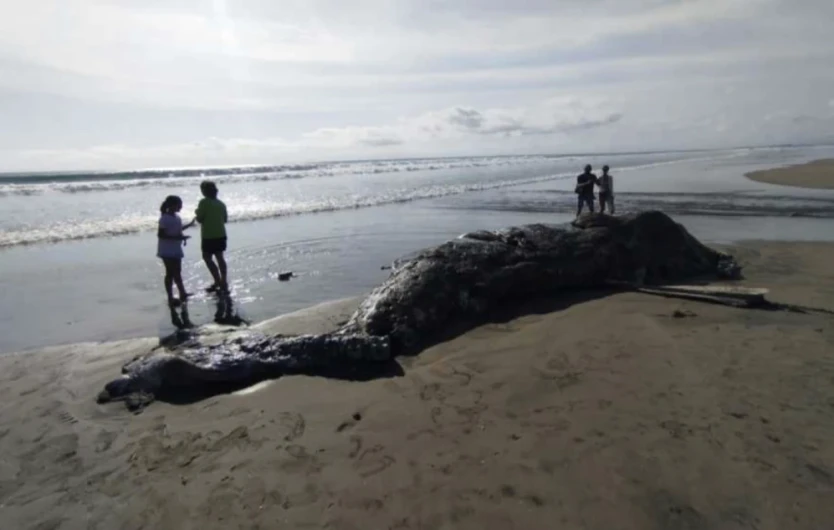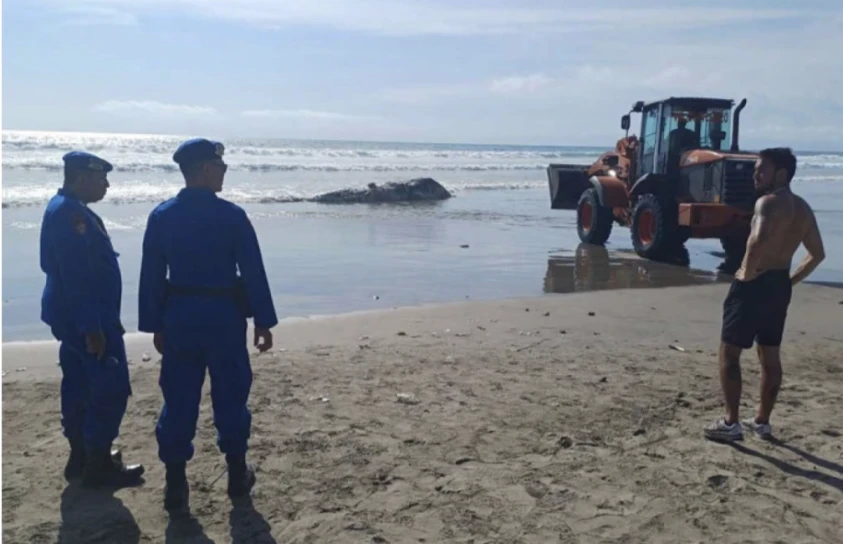
Locals and tourists who discovered the whale carcass on Legian Beach in Bali immediately realized that the whale couldn't be saved, evident from the strong unpleasant odor and peeling skin. Specialists on-site confirmed the animal had died approximately four days ago. The experts identified it as a sperm whale, a giant among toothed whales, known for growing throughout their lives. Despite its size, this whale, around 10 meters long and weighing about a ton, was considered relatively small. Local veterinarians speculated it was a female. Despite the foul smell, the whale drew considerable attention from both locals and tourists, prompting visits to the beach for a glimpse and a photograph. However, the decomposing body posed challenges for veterinary services and the police, urging the need for a swift burial. When animals are found in such a state, post-mortem examinations are often deemed environmentally unsafe. The specialists may only study a few fin samples in the laboratory to confirm the whale's species.

Results typically take up to a month to be officially published. Discussing potential causes of the whale's death, the head of Bali's nature conservation department mentioned that such whales typically live in groups and may become stranded if separated from their pod. The damaged hydrolocator might have led the whale off course, resulting in it beaching. However, determining the precise cause of the whale's death remains challenging. Factors like diseases, marine pollution, noise, and climate change could contribute to the mortality of marine mammals and large fish washed ashore.
You can add one right now!